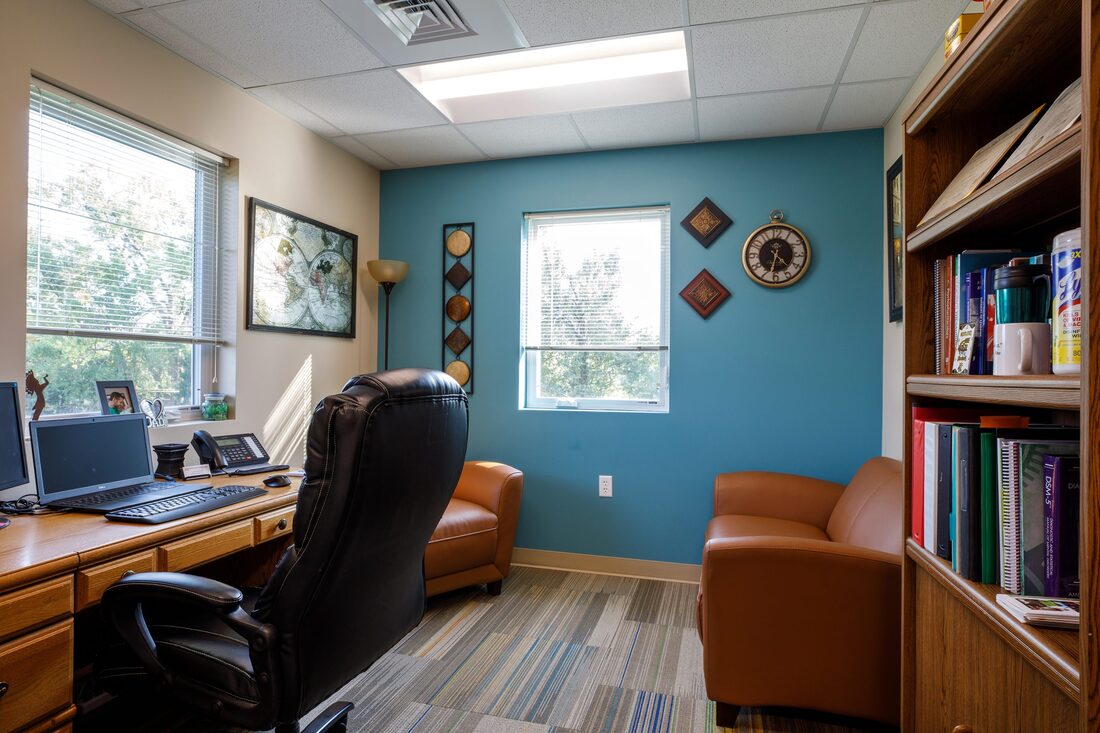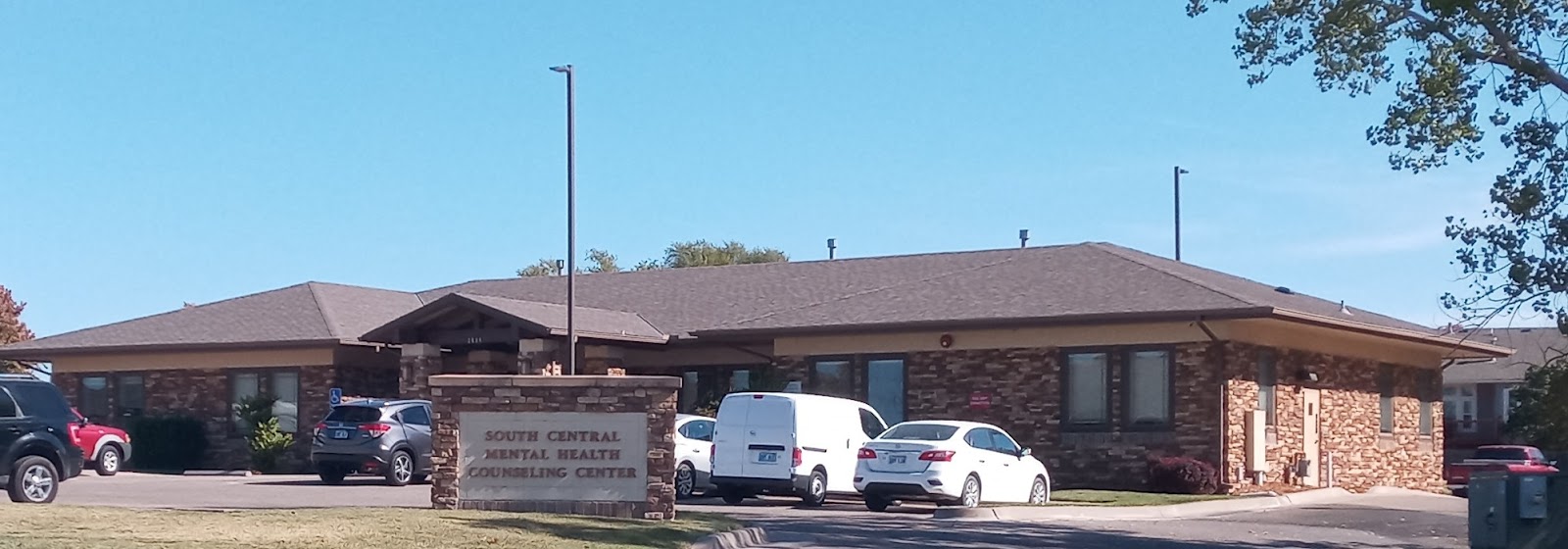Overview
South Central Mental Health - Counseling Center is a substance abuse treatment center for people seeking treatment near Butler County. As part of their treatment modalities for recovery, South Central Mental Health - Counseling Center provides group counseling during treatment. South Central Mental Health - Counseling Center is located in Andover, Kansas, accepting cash or self-payment for treatment.
South Central Mental Health - Counseling Center at a Glance
Payment Options
- Cash or self-payment
- Private health insurance
Assessments
- Comprehensive mental health assessment
- Comprehensive substance use assessment
Age Groups
- Adults
- Young adults
Operation
- Private for-profit organization
Treatment At South Central Mental Health - Counseling Center

Conditions Treated
Mental health treatment:
Mental health treatment involves a range of therapeutic approaches, provided by licensed professionals, to address mental health challenges. It includes psychotherapy, medication, and holistic practices to help individuals manage conditions, improve coping skills, and enhance overall well-being. The goal is to empower individuals to lead fulfilling lives and reduce the stigma surrounding mental health.
Alcoholism:
Alcohol addiction is a condition where someone feels a strong and uncontrollable urge to drink alcohol, often leading to negative effects on their health, relationships, and daily life. To assist individuals grappling with alcohol addiction, various strategies exist. Initially, supervised detoxification may be necessary to ensure a safe cessation of alcohol consumption. Following this, counseling and therapy play a crucial role in addressing the psychological facets of the addiction. Engaging in support groups can also offer a sense of camaraderie and comprehension.
Opioid Addiction:
Opioid rehabs specialize in supporting those recovering from opioid addiction. They treat those suffering from addiction to illegal opioids like heroin, as well as prescription drugs like oxycodone. These centers typically combine both physical as well as mental and emotional support to help stop addiction. Physical support often includes medical detox and subsequent medical support (including medication), and mental support includes in-depth therapy to address the underlying causes of addiction.
Substance use treatment:
Substance use rehabilitation represents a holistic treatment strategy tailored to aid individuals grappling with drug or alcohol addiction. This comprehensive rehabilitation method encompasses two key aspects: first, addressing the physical dependency, often commencing with detoxification, and second, tackling the psychological triggers through a range of therapeutic techniques. The ultimate aim is to empower individuals to attain and sustain sobriety while providing them with the necessary skills and coping mechanisms to successfully reintegrate into society and lead a life free from substance abuse.
Co-occurring Disorders:
Dual-diagnosis rehabilitation centers specialize in the treatment of individuals who suffer from a co-occurring mental health disorder and a substance use disorder. This complex interplay between addiction and mental health can make recovery more challenging, as each condition may exacerbate the symptoms of the other. Dual-diagnosis rehabilitation centers offer an integrated approach that addresses both issues simultaneously and often includes a comprehensive assessment for an Integrated Treatment Approach through Holistic Therapies, including family therapy and aftercare treatment.

Levels Of Care
Intensive outpatient treatment:
Intensive Outpatient (IOP) is a form of structured therapy designed to support individuals in recovery from addiction, mental health disorders, or other medical conditions. Unlike inpatient or residential treatment, where patients live at the facility, IOP allows individuals to receive high-level care while still living at home and maintaining specific day-to-day responsibilities. Typically, patients in IOP programs attend sessions multiple times per week, often totaling 9-20 hours or more. These sessions can include individual therapy, group therapy, family counseling, and educational classes focused on skills and strategies for managing symptoms and preventing relapse.
Detoxification:
Detoxification, often shortened to detox, is like giving the body a fresh start by getting rid of harmful substances like drugs or alcohol someone may have taken. When a person stops taking these substances, they might feel sick or uncomfortable as their body adjusts to the change. Detox helps ease these uncomfortable feelings while making sure the harmful substances are removed from the body in a safe way. This process helps prevent any additional harm caused by the drugs or alcohol.
Outpatient:
Outpatient treatment at rehab centers provides adaptable therapy schedules, usually spanning 1-3 hours weekly, enabling participants to maintain their everyday routines while undergoing treatment. On the other hand, intensive outpatient programs require a more dedicated time investment, frequently around 9-15 hours a week, delivering a deeper therapeutic experience without the commitment of inpatient residency.

Treatment Modalities
Group counseling:
Group therapy entails therapeutic sessions conducted in a collective setting rather than one-on-one. It encompasses various modalities, from support groups and experiential therapy to psycho-education and beyond. The approach focuses on treatment and emphasizes the dynamic interactions and shared experiences among group members.
Individual psychotherapy:
Individual Psychotherapy is a personalized therapeutic approach aimed at aiding individuals in overcoming addiction and its underlying psychological triggers. A licensed therapist works closely with the individual through one-on-one sessions to unearth and address personal challenges, emotional issues, and behavioral patterns contributing to their substance abuse. Individual psychotherapy lays a robust foundation for a sustainable recovery and a better quality of life by fostering self-awareness, coping strategies, and healthier behavioral responses.
Trauma-related counseling:
Trauma-related counseling is a specialized form of therapeutic intervention aimed at assisting individuals who have experienced distressing, life-altering events. This approach focuses on helping clients process their traumatic experiences, develop coping mechanisms, and rebuild a sense of safety and trust. Counselors trained in trauma therapy use evidence-based techniques to support healing and resilience, ensuring survivors can move forward and lead fulfilling lives despite their past adversities.
Ancillary Services
Special Programs
- Clients who have experienced trauma

Additional Locations
Contact Information
DISCLAIMER: The facility name, logo and brand are the property and registered trademarks of South Central Mental Health - Counseling Center, and are being used for identification and informational purposes only. Use of these names, logos and brands shall not imply endorsement. BetterAddictionCare.com is not affiliated with or sponsored by South Central Mental Health - Counseling Center.




